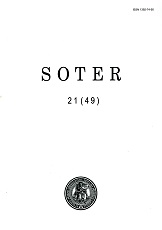Laimingojo laukinio būklės ilgesys ir naivioji seksologija kaip jaunuomenės tvirkinimo filosofinis pagrindas
Nostalgia for the happy savage state as the philosophical bases for the corruption of youth
Author(s): Gintautas VaitoškaSubject(s): Christian Theology and Religion
Published by: Vytauto Didžiojo Universitetas
Keywords: seksualinės energijos sublimacija; mylinčioji ir utilitarinė seksualumo dimensijos; „ano laiko“ (illud tempo) archetipas ir laimingojo laukinio mitas; seksualinis švietimas; psichoseksualinė asmenybės branda; sublimation of sexual energy;
Summary/Abstract: The „happy savage” myth, based on the universal nostalgia for archetypical illud tempus, received its best known version in the writings of Jean Jacque Rousseau. Freud partially believed in it; on the other hand, psychoanalysis has been clear about the value of sublimation of sexual energy and historical evidence is that the family and sexual discipline are not results of civilization, but the cause of it. This theses has been convincingly demonstrated by Joseph D. Unwin, in his study Sex and Culture written in 1930’ies with a comprehensive analysis of the history of world’s major civilizations and many primitive cultures. The basic problem of contemporary sex education theorists is that of unilateral and naïve understanding of the nature of sexual energy: they see it as uncompromisingly good, thereby dismissing the complex interplay between its positive, love-generating aspect and the negative, utilitarian urge to use another person. Self-discipline, far from being destructive, has a positive influence for the development of the young personality and has major effects on the fate and the moral climate of the whole nation.
Journal: SOTER: religijos mokslo žurnalas
- Issue Year: 49/2007
- Issue No: 21
- Page Range: 97-104
- Page Count: 8
- Language: Lithuanian

